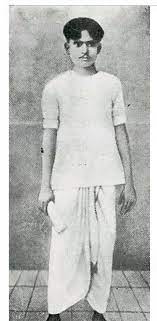Kazi Nazrul Islam (p1)

“Bidrohi” [“The Rebel”] ( December 1921),
as translated by Kabir Choudhary
Weary of struggles, I, the great rebel,
Shall rest in quiet only when I find
The sky and the air free of the piteous groans of the oppressed.
Only when the battle fields are cleared of jingling bloody sabres
Shall I, weary of struggles, rest in quiet,
I am the rebel eternal,
I raise my head beyond this world and,
High, ever erect and alone!
Kazi Nazrul Islam
The Rebel Poet of Bengal
The National Poet of Bangladesh and more truly a World Poet.
“Even though I was born in this country (Bengal), in this society, I don’t belong to just this country, this society. I belong to the world”

Kazi Nazrul Islam, often referred to as the “Rebel Poet” of Bangladesh, was a prolific poet, musician, and freedom fighter. His powerful verses, characterised by their revolutionary spirit and passion, played a pivotal role in inspiring social change and nationalistic sentiments during periods of colonial rule.
He was an exceptionally versatile poet, lyricist, and writer, known for creating numerous exquisite pieces of poetry, prose, songs, and classical music.
Kazi Nazrul, affectionately known as the ‘Rebel’ poet in Bengali literature and the ‘Bulbul’ or Nightingale of Bengali music, was one of the most vibrant figures of undivided Bengal. He can be regarded as a pioneer of post-Tagore modernity in Bengali poetry. The innovative style of poetry he introduced paved the way for the emergence of modernity in Bengali literature during the 1920s and 1930s. His works—including poems, songs, novels, short stories, plays, and political activism—vocally challenged various forms of oppression such as slavery, communalism, feudalism, and colonialism. His bold stance led the British government to not only ban many of his books but also to imprison him. During his time in prison, Kazi Nazrul Islam undertook a 40-day fast in protest against the tyranny of the British regime.



